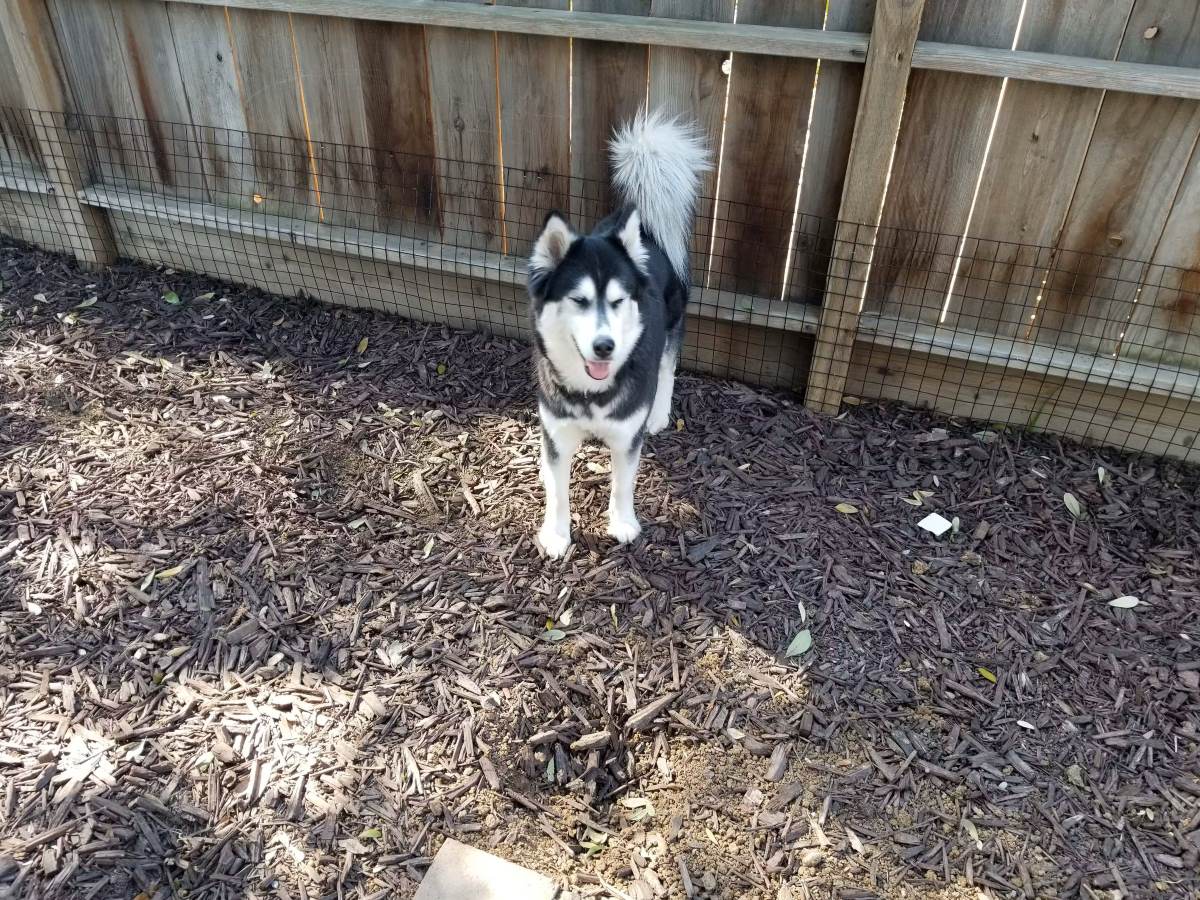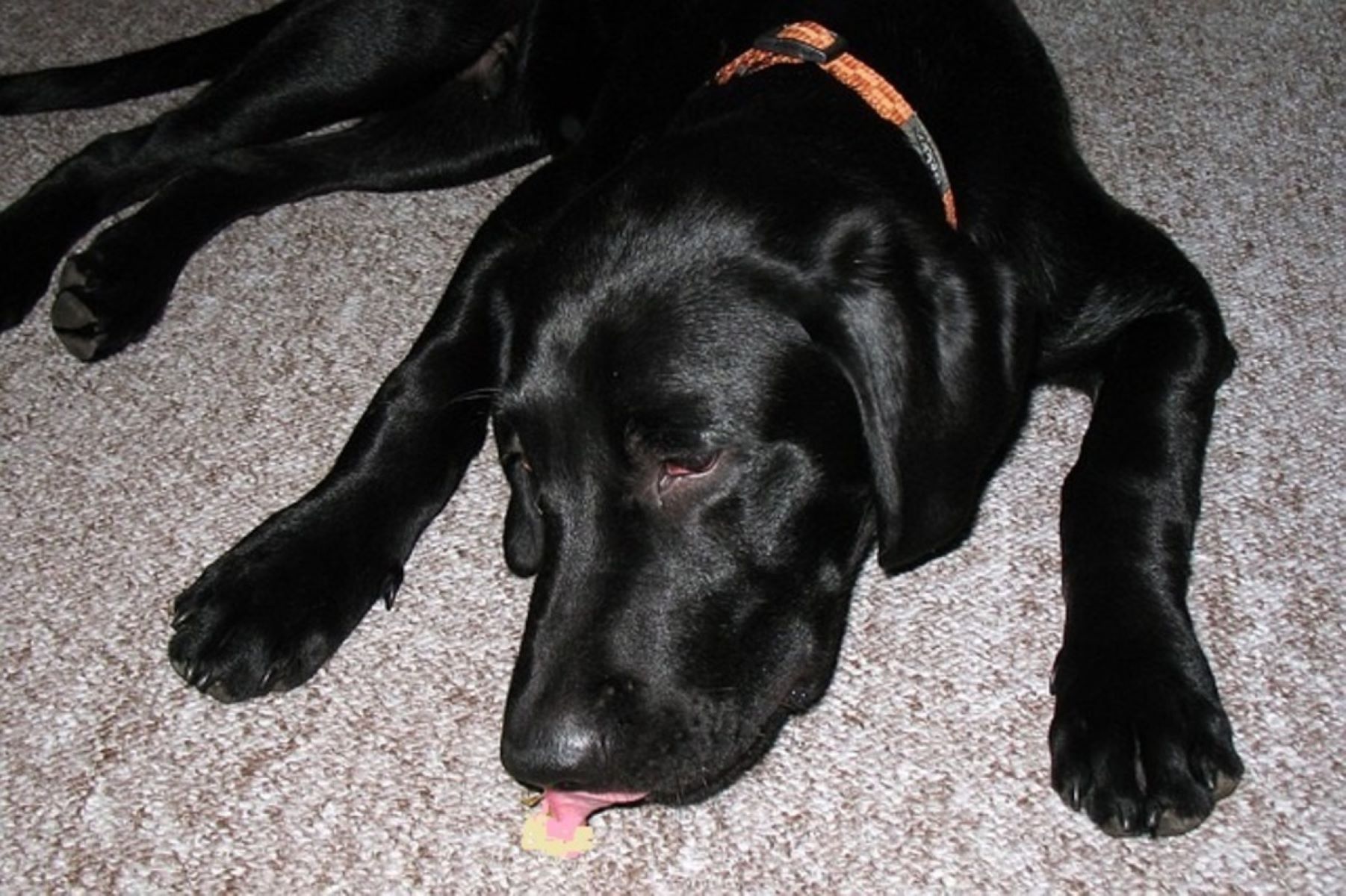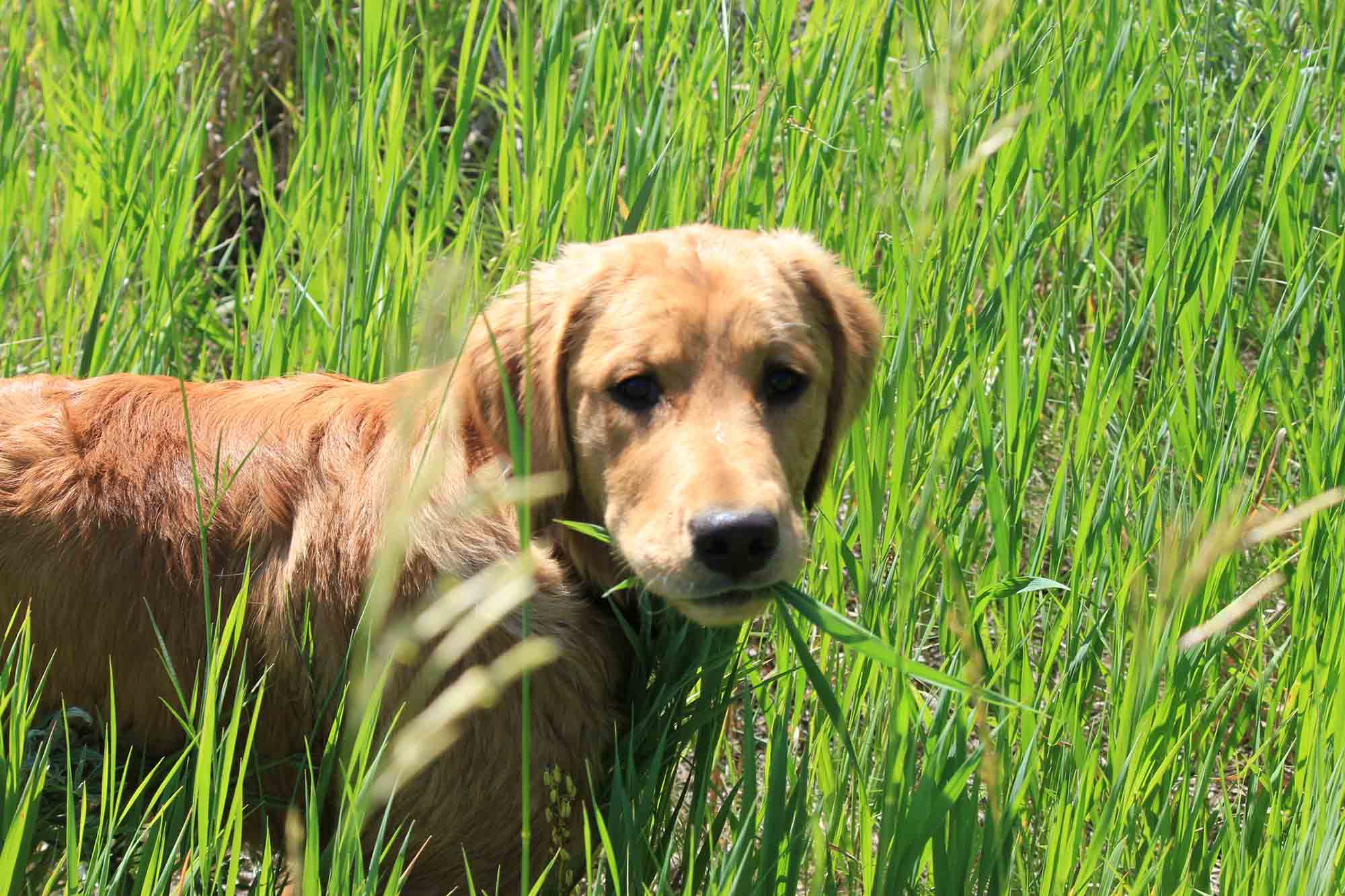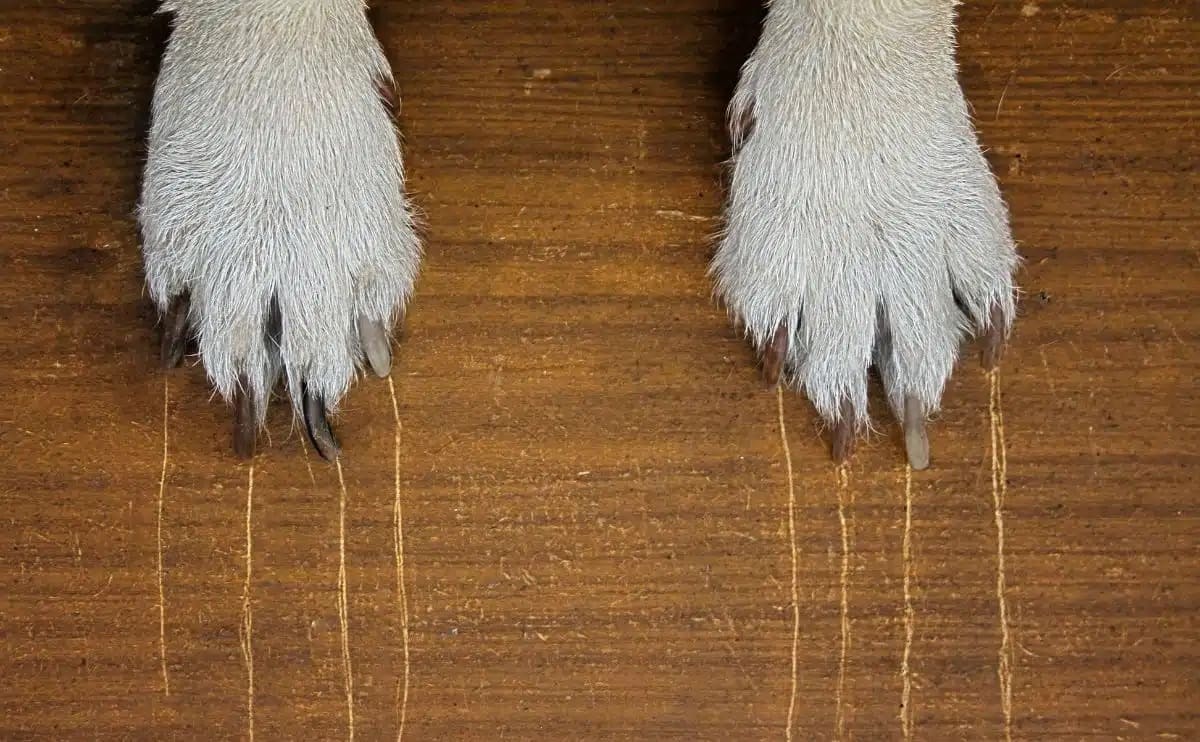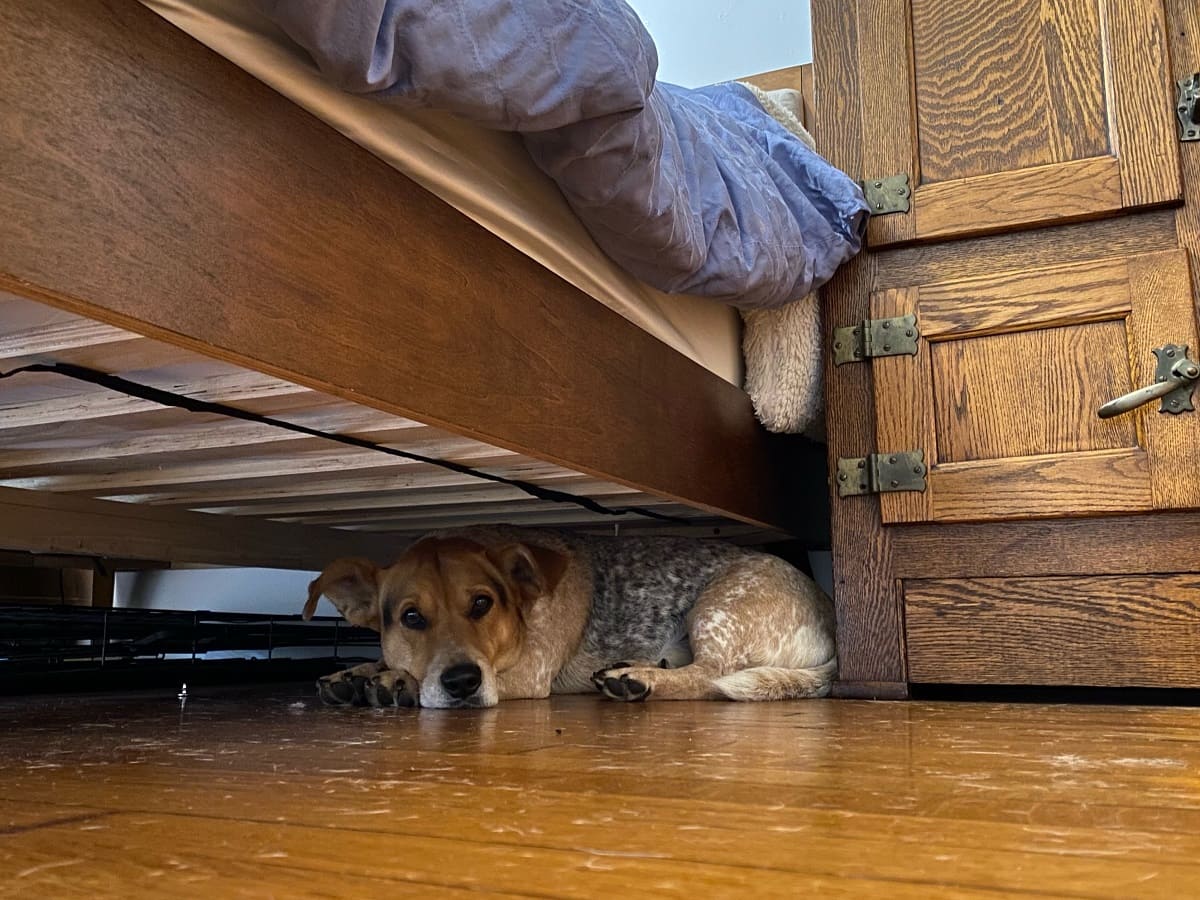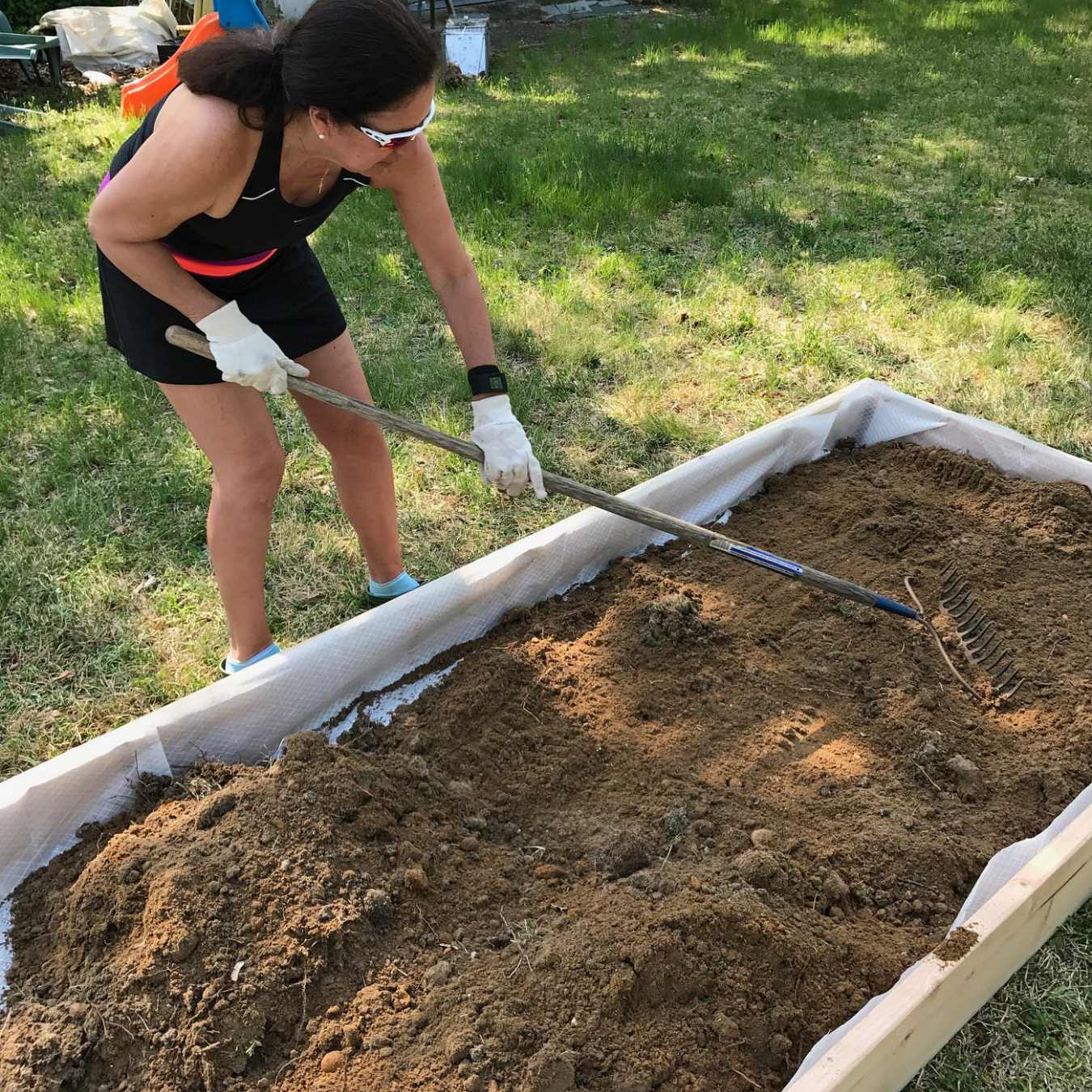Home>Furniture>Bedroom Furniture>Why Do Dogs Dig On The Bed


Bedroom Furniture
Why Do Dogs Dig On The Bed
Modified: December 21, 2023
Discover the reasons why dogs love to dig on the bed and how you can prevent it. Make your bedroom furniture dog-proof with useful tips and tricks.
(Many of the links in this article redirect to a specific reviewed product. Your purchase of these products through affiliate links helps to generate commission for Storables.com, at no extra cost. Learn more)
Introduction
Welcome to the wonderful world of dogs and their quirky behaviors. If you are a dog owner, you have probably experienced the frustration of finding your furry friend digging on your perfectly made bed. While it may seem perplexing and even frustrating, there are actually several reasons why dogs engage in this behavior.
In this article, we will explore the various motivations behind why dogs dig on the bed and provide some insights into how you can address this behavior. Understanding your dog’s instincts and needs will not only help you prevent this unwanted behavior, but also strengthen the bond between you and your beloved pet.
So, let’s delve into the fascinating reasons why our four-legged friends have a penchant for digging on our comfy beds.
Key Takeaways:
- Understanding your dog’s instincts and needs is crucial to prevent bed-digging. Provide alternative digging spots, mental/physical stimulation, and enforce boundaries to redirect their behavior effectively.
- Seeking professional help is valuable if your efforts don’t yield results. Trained professionals can assess underlying factors, provide individualized strategies, and offer ongoing support to address bed-digging behavior effectively.
Read more: Why Do Dogs Dig In The Carpet
Reasons why dogs dig on the bed
Dogs dig on the bed for a variety of reasons, and it’s important to understand these motivations in order to effectively address the behavior. While each dog is unique, the following are some common reasons why dogs engage in this digging behavior:
- Instinctual behavior: Dogs have a natural instinct to dig, which can be traced back to their ancestral roots. Wild canines would dig dens to create a safe and comfortable space for themselves and their offspring. This instinctual behavior can still manifest in pet dogs, leading them to dig on soft surfaces like our beds.
- Seeking comfort and security: Dogs are creatures of comfort, and the softness of a bed can be highly appealing to them. By digging, they may be trying to create a cozy nest or burrow, similar to what they would do in the wild. This behavior can provide them with a sense of security and help them relax.
- Marking territory: Dogs have scent glands in their paws, and digging can be a way for them to mark their territory. By leaving their scent on the bed, they are claiming it as their own and sending a message to other animals that this space belongs to them.
- Boredom or excess energy: Dogs who are bored or have pent-up energy may resort to digging as a way to release their frustration or burn off excess energy. If a dog is not getting enough mental and physical stimulation through activities and exercise, they may turn to digging as a form of entertainment.
- Separation anxiety: Some dogs may dig on the bed as a result of separation anxiety. When their owner is away, they may feel stressed or anxious, and digging can be a coping mechanism for them. The familiar scent and comfort of the bed may provide a temporary sense of security.
- Inappropriate training or reinforcement: In some cases, dogs may have learned that digging on the bed brings them attention or rewards. If they have been inadvertently reinforced for this behavior in the past, they may continue to engage in it as a means to obtain attention from their owner.
As you can see, there are various underlying reasons why dogs may be drawn to dig on the bed. Understanding these motivations is crucial in order to address the behavior effectively. In the next section, we will explore some strategies to prevent dogs from digging on the bed and redirect their behavior.
Instinctual behavior
Dogs have a strong instinctual behavior to dig, which can be traced back to their ancestors. Wild canines, like wolves, would dig dens in the ground to create a safe and comfortable space for themselves and their offspring. This behavior served multiple purposes, including protection from predators, shelter from extreme weather conditions, and a place to raise their young.
Despite thousands of years of domestication, this instinct still remains strong in our canine companions. When dogs dig on the bed, they are essentially mimicking the natural behavior of digging a den or a nest. The softness of the mattress provides a similar sensation to the soil or leaves that wild canines would use.
It’s important to remember that this behavior is not carried out with malicious intent. Your dog is not intentionally trying to destroy your bed or annoy you. Instead, they are simply following their deeply ingrained instincts.
To address this behavior, it’s essential to provide your dog with alternative outlets for their digging instinct. Creating a designated digging area in your yard, complete with loose soil or sand, can give your dog a space to engage in this natural behavior. Encourage and reward them for using this designated spot, and redirect their attention to it when you catch them digging on the bed.
Additionally, providing appropriate mental and physical stimulation for your dog can help alleviate the need to engage in excessive digging. Regular exercise, interactive toys, and puzzle games can all help occupy their minds and burn off excess energy.
Remember, understanding and working with your dog’s instinctual behavior is key to effectively managing and redirecting their digging tendencies. By providing them with alternative outlets and fulfilling their natural instincts, you can help ensure a happy and well-behaved canine companion.
Seeking comfort and security
One of the primary reasons why dogs dig on the bed is to seek comfort and security. Dogs are den animals by nature, and they have an inherent need for a safe and cozy space where they can relax and feel secure. The softness and warmth of a bed make it an attractive spot for them to fulfill this need.
When a dog starts digging on the bed, it can be their way of creating a nest or burrow that provides a sense of comfort and security. By digging, they may be trying to create a space that feels enclosed and supportive, similar to the dens they would find in the wild.
This behavior is especially common in breeds with a strong nesting instinct, such as terriers and small to medium-sized dogs. Digging on the bed allows them to arrange the bedding to their liking, providing them with a sense of control and ownership over their resting place.
To address this behavior, it’s important to provide your dog with an alternative nesting area that meets their need for comfort and security. Consider setting up a cozy dog bed or crate in a quiet corner of your home. Make it inviting with soft blankets or pillows and create a calming environment with low lighting and soothing sounds.
Encourage your dog to use this designated space by rewarding them with treats or praise when they choose to rest there. You can also make the area more appealing by placing their favorite toys or a familiar-smelling item, like a piece of your clothing, in the space.
By providing a comfortable and secure alternative to your bed, you can help redirect your dog’s digging behavior while still fulfilling their need for a cozy spot to relax and unwind.
Remember, patience and consistency are key when addressing this behavior. It may take time for your dog to adjust to the new designated area, so be patient and reinforce positive behavior. With time and proper guidance, your dog will find comfort and security in their designated space, reducing their inclination to dig on your bed.
Marking territory
Dogs have a natural instinct to mark their territory, and one way they do this is through scent marking. Scent glands are located in a dog’s paw pads, and when they dig, they release their unique scent onto the surface they are digging on. This scent acts as a message to other animals, indicating that the area is claimed or belongs to them.
Digging on the bed can be a way for your dog to assert their ownership and mark their territory within the household. The familiar scent of the bed makes it an attractive spot for them to leave their scent and communicate their presence.
To address this behavior, it’s important to establish boundaries and reinforce your role as the leader. Make it clear to your dog that the bed is off-limits for digging and marking. Consistency is key, so whenever you catch your dog digging on the bed, firmly say “no” and redirect them to an appropriate behavior or designated digging spot.
In addition to setting boundaries, providing your dog with outlets to mark their territory in a more appropriate manner can help redirect this behavior. Take your dog for regular walks and allow them to sniff and explore their surroundings. This helps fulfill their natural instinct to mark and scent their environment.
Creating a designated outdoor space, such as a small sandbox or a patch of dirt, where your dog is allowed to dig can also be helpful. Encourage them to dig in this area and reward them for doing so. By providing an acceptable location for marking and digging, you can redirect their behavior away from your bed.
Remember, consistency and positive reinforcement are key when addressing territorial marking through digging. With patience and proper guidance, you can help your dog understand the appropriate places to mark their territory while respecting your boundaries and keeping your bed free from digging.
Read more: Why Do Dogs Sleep At The Foot Of The Bed
Boredom or excess energy
Dogs are active and energetic creatures, and when they do not receive enough mental and physical stimulation, they may resort to behaviors like digging as a way to burn off their excess energy or alleviate boredom.
If your dog is left alone for long periods of time without any opportunities to engage in fulfilling activities, they may turn to digging on the bed as a way to entertain themselves. Digging provides mental and physical stimulation, and it can be a way for dogs to release pent-up energy and alleviate boredom.
To address this behavior, it’s important to ensure that your dog is getting sufficient exercise and mental stimulation throughout the day. Regular walks, playtime, and interactive toys can help tire them out and keep their minds occupied.
Consider incorporating activities that involve problem-solving or interactive play to engage your dog mentally. This can include puzzle toys or treat-dispensing toys that require them to work for their rewards. Mental stimulation is just as important as physical exercise in keeping your dog content and fulfilled.
In addition, create a schedule that includes regular play and exercise sessions. Dogs thrive on routine, and having a predictable daily routine can help prevent boredom and limit the need for excessive digging. It’s also important to spend quality time bonding with your dog through activities such as training sessions, as this can provide mental stimulation and strengthen your relationship.
If you are unable to provide sufficient exercise or mental stimulation due to time constraints, consider enlisting the help of a dog walker or enrolling your dog in doggie daycare. These options can ensure that your dog receives the necessary outlets for their energy and helps prevent them from resorting to digging on your bed.
Remember, addressing boredom and excess energy requires a proactive approach. By providing appropriate outlets for physical and mental stimulation, you can help redirect your dog’s energy and prevent them from engaging in destructive behaviors like digging on the bed.
Separation anxiety
Dogs are social animals and they form strong bonds with their owners. When left alone for extended periods of time, some dogs may experience separation anxiety, which can manifest in various behaviors, including digging on the bed.
Digging on the bed can be a coping mechanism for dogs with separation anxiety. They may feel stressed, anxious, and insecure when left alone, and digging can provide them with a temporary outlet for their emotions. The familiar scent and comfort of the bed may provide some solace during their owner’s absence.
To address this behavior, it’s important to address the underlying anxiety and provide reassurance to your dog. Gradual desensitization and counterconditioning techniques can be effective in helping them overcome separation anxiety.
Start by leaving your dog alone for short periods of time and gradually increase the duration as they become more comfortable. Make sure to provide them with plenty of mental and physical stimulation before leaving, such as a long walk or play session, to help tire them out.
Creating a safe and calming environment in your absence can also help alleviate separation anxiety. Leave your dog with comforting items, such as a favorite blanket or toy, and consider using calming aids like pheromone sprays or calming music. These can help create a soothing atmosphere and reduce their anxiety.
It can also be beneficial to consult with a professional dog trainer or behaviorist who specializes in separation anxiety. They can provide personalized strategies and guidance to help your dog overcome their anxiety and develop coping mechanisms.
Remember, addressing separation anxiety requires patience and consistency. By gradually addressing their fears and providing reassurance, you can help your dog feel more secure and reduce their inclination to engage in behaviors like digging on the bed.
Provide your dog with a designated digging area, such as a sandbox or a specific spot in the yard, to redirect their digging behavior away from the bed.
Inappropriate training or reinforcement
In some cases, dogs may dig on the bed as a result of inappropriate training or unintentional reinforcement of the behavior. Dogs are highly attuned to our actions and reactions, and they learn through associations and consequences.
If a dog has been accidentally reinforced for digging on the bed in the past, such as receiving attention or rewards when engaging in the behavior, they may continue to do so as a means to obtain a desired response from their owner.
It’s important to evaluate your own response to your dog’s digging behavior. If you have inadvertently rewarded or paid attention to your dog while they were digging on the bed, they may have learned that this behavior brings them the attention or rewards they desire.
To address this issue, consistency and redirection are key. Whenever you catch your dog digging on the bed, firmly say “no” and redirect their attention to an appropriate behavior or designated digging spot. Avoid giving any attention or reinforcement when they engage in the undesired behavior.
It’s also important to provide your dog with plenty of positive reinforcement and attention when they are exhibiting desired behaviors, such as using their designated digging area or resting quietly in their own bed. This helps teach them what behaviors are acceptable and reinforces the desired actions.
Consistency is crucial in ensuring that your dog understands which behaviors are acceptable and which are not. It may take time and patience, but with consistent redirection and reinforcement of desired behaviors, you can help retrain your dog and discourage them from digging on the bed.
If you find that the behavior persists or worsens despite your efforts, it may be beneficial to seek the assistance of a professional dog trainer or behaviorist. They can provide additional guidance and tailored strategies to help address the inappropriate training or reinforcement that may have contributed to the digging behavior.
Remember, clear communication and consistent reinforcement of appropriate behaviors will help your dog understand what is expected of them and minimize the likelihood of digging on the bed.
How to prevent dogs from digging on the bed
Preventing dogs from digging on the bed requires a combination of understanding their motivations, providing appropriate outlets for their needs, and consistent training. Here are some strategies you can implement to discourage this behavior:
- Provide alternative digging spots: Create a designated area in your yard or home where your dog is allowed to dig. Fill it with loose soil or sand and encourage them to use this area instead of the bed. Reward and praise them when they use the designated spot.
- Provide mental and physical stimulation: Ensure that your dog is getting enough exercise and mental stimulation throughout the day. Regular walks, interactive toys, and puzzle games can help keep them physically and mentally engaged, reducing their need to dig out of boredom or excess energy.
- Set and enforce boundaries: Establish clear boundaries and consistently reinforce them. When you catch your dog digging on the bed, firmly say “no” and redirect their attention to an appropriate behavior or designated digging area. Avoid giving them attention or reinforcement when they engage in undesired behavior.
- Make the bed less appealing: Modify the environment to make the bed less inviting for digging. Use deterrent sprays or double-sided sticky tape to discourage your dog from jumping on the bed or digging. Cover the bed with a plastic sheet or place aluminum foil on top, as the texture can be unpleasant for dogs to dig on.
- Provide a comfortable resting area: Ensure that your dog has a comfortable and secure bed or crate of their own. Make it inviting with soft bedding and familiar scents. By providing them with their own cozy space, they will be less inclined to dig on your bed.
- Seek professional help if necessary: If your dog’s digging behavior persists or worsens despite your efforts, consider consulting a professional dog trainer or behaviorist. They can provide personalized guidance and strategies to address the behavior and help retrain your dog.
Remember, consistency and positive reinforcement are key in preventing dogs from digging on the bed. By providing appropriate alternatives, setting boundaries, and fulfilling your dog’s physical and mental needs, you can help redirect their behavior and ensure a peaceful and bed-dig-free environment for both you and your furry companion.
Read more: Why Do Raccoons Dig Up Lawns
Provide alternative digging spots
One effective strategy to prevent dogs from digging on the bed is to provide them with alternative digging spots. By redirecting their natural digging instinct to a designated area, you can satisfy their needs while protecting your bed. Here are some steps to help you establish alternative digging spots:
- Select an appropriate location: Choose a suitable area in your yard or home where your dog can dig without causing any damage or inconvenience. It should be an area that is easily accessible to your dog and has enough space for them to engage in digging activities.
- Prepare the designated spot: Fill the designated area with loose soil, sand, or a mix of dirt and mulch. This will mimic the natural texture and feel of the ground, which will be more appealing to your dog than the smooth surface of your bed.
- Make it attractive: Encourage your dog to use the designated spot by making it more appealing. Bury some of their favorite toys or treats in the area to pique their interest. You can also try sprinkling a small amount of their urine or scent around the area, as this may further entice them to dig in that spot.
- Redirect their digging behavior: Whenever you catch your dog digging on the bed, firmly say “no” and redirect them to the designated digging spot. You can use a command like “dig” or “dig here” to associate the behavior with the specific area. If they comply and start digging in the designated spot, reward and praise them to reinforce the behavior.
- Encourage and reward: Whenever you notice your dog digging in the appropriate spot, provide positive reinforcement in the form of verbal praise, treats, or playtime. This will help them understand that using the designated spot is a desirable behavior and they will be more likely to continue digging there in the future.
- Monitor and correct: Keep an eye on your dog and redirect them to the designated spot whenever necessary. Consistency is key here. Over time, with patience and reinforcement, your dog will develop the habit of digging in their designated area rather than on your bed.
Remember, providing alternative digging spots is not a one-time solution. Consistent reinforcement, redirecting unwanted behavior, and rewarding desired behavior are essential in training your dog to use the designated area and prevent them from digging on the bed. With time, patience, and positive reinforcement, your furry friend will learn where it’s appropriate to satisfy their digging instincts, allowing you both to enjoy a peaceful coexistence.
Provide mental and physical stimulation
One of the key factors that can contribute to a dog’s tendency to dig on the bed is boredom or excess energy. To prevent this behavior, it’s crucial to provide your dog with sufficient mental and physical stimulation. Here are some strategies to consider:
- Regular exercise: Ensure that your dog gets regular exercise through daily walks, playtime, or runs. The amount of exercise required depends on your dog’s breed, age, and health, so consult with your veterinarian to determine an appropriate exercise routine. Physical activity helps burn off energy and can reduce the likelihood of your dog engaging in destructive behaviors like digging.
- Interactive toys: Invest in interactive toys that challenge your dog’s mind and keep them engaged. Puzzle toys, treat-dispensing toys, and interactive balls can provide mental stimulation as your dog works to retrieve treats or solve puzzles. This can help redirect their focus away from digging on the bed and toward a more constructive and stimulating activity.
- Training and obedience exercises: Engage your dog in regular training sessions to keep their mind active and provide mental stimulation. Teach them basic commands, tricks, or engage in obedience exercises. This not only mentally stimulates your dog but also reinforces communication and strengthens the bond between you and your furry friend.
- Engage in interactive play: Play interactive games with your dog, such as fetch or hide-and-seek, to provide both mental and physical stimulation. These activities help engage their senses, channel their energy, and provide a positive outlet for their natural instincts.
- Rotate and introduce new toys: Keep your dog’s toy collection fresh by rotating their toys regularly. Introduce new toys to keep their interest and curiosity high. Novelty can stimulate their mind and help prevent boredom, reducing the likelihood of them seeking entertainment through digging on the bed.
- Consider doggy daycare or social outings: If your schedule allows, consider enrolling your dog in doggy daycare or scheduling playdates with other friendly dogs. Social interactions and play with other dogs can provide mental and physical stimulation, as well as an outlet for their energy.
Remember to tailor the activities and exercises to your dog’s individual needs and abilities. Different dogs have different energy levels and preferences, so finding activities that they enjoy will help keep them mentally stimulated and less inclined to resort to destructive digging behaviors.
By providing your dog with mental and physical stimulation, you are ensuring that their needs are met and reducing the likelihood of boredom-related digging on the bed. A tired and engaged dog is a happy dog, and a happy dog is less likely to engage in unwanted behaviors.
Set and enforce boundaries
Establishing clear boundaries is crucial in preventing dogs from digging on the bed. When your dog understands what is acceptable behavior, they are more likely to comply and respect your rules. Here are some steps to set and enforce boundaries:
- Consistent rules: Ensure that everyone in your household is on the same page regarding the bed-digging rule. Consistency is key in reinforcing boundaries and preventing confusion for your dog.
- Prohibit access: Initially, consider restricting your dog’s access to the bedroom or the bed altogether. This helps create a clear boundary and prevents them from having the opportunity to engage in the undesired behavior.
- Use barriers: If restricting access to the bedroom is not feasible, use physical barriers such as baby gates or closed doors to prevent your dog from entering the room. This reinforces the boundary and helps them understand that the bed is off-limits for digging.
- Redirect attention: Whenever you catch your dog attempting to dig on the bed, firmly say “no” and redirect their attention to a more appropriate activity or behavior. Provide them with a chew toy, engage them in interactive play, or redirect them to their designated digging spot.
- Provide alternatives: As mentioned earlier, create a designated area where your dog is allowed to dig, such as a sandbox or a specific spot in the yard. Encourage and reward them for using the designated spot, reinforcing the idea that this is an acceptable alternative to digging on the bed.
- Positive reinforcement: When your dog follows the boundary and refrains from digging on the bed, provide positive reinforcement in the form of verbal praise, treats, or playtime. This helps reinforce their good behavior and encourages them to continue respecting the boundary.
- Be patient and consistent: It’s important to be patient while your dog is learning and adjusting to the boundaries. Consistency and repetition are essential in reinforcing the rules and expectations. With time, patience, and consistent reinforcement, your dog will understand and respect the boundaries you have set.
Keep in mind that dogs are creatures of habit, and it may take some time for them to fully internalize and follow the established boundaries. By consistently reinforcing the rules and redirecting their behavior, you are helping them understand what is acceptable and what is not.
Remember to be fair and firm in your approach. Avoid punishment or harsh methods as they can create fear or anxiety in your dog. Instead, focus on positive reinforcement and redirection to encourage desirable behavior and discourage bed-digging.
By setting and enforcing boundaries, you are providing your dog with a clear understanding of what is expected of them, and ultimately creating a harmonious living space where their digging instincts are redirected to more appropriate activities.
Seek professional help if necessary
If you are struggling to prevent your dog from digging on the bed despite your best efforts, it may be beneficial to seek professional help. A trained and experienced dog trainer or behaviorist can provide valuable guidance and support in addressing the issue. Here’s why professional help can be beneficial:
- Expertise and assessment: A professional will have the knowledge and expertise to assess your dog’s behavior, identify underlying causes, and determine the most appropriate course of action. They can help you understand the specific factors contributing to the bed-digging behavior and develop a tailored plan to address it.
- Individualized strategies: Every dog is unique, and what works for one dog may not work for another. A professional will be able to assess your dog’s personality, history, and environment and develop an individualized plan based on their needs. This tailored approach can greatly increase the chances of success in modifying the digging behavior.
- Training techniques and tools: A professional dog trainer or behaviorist will utilize effective and humane training techniques to modify your dog’s behavior. They can teach you the proper use of training tools and techniques that you may not be familiar with, ensuring that you are using them correctly and safely.
- Support and guidance: Changing a dog’s behavior can be a challenging process, and having the support and guidance of a professional can make a significant difference. They can provide ongoing support, answer any questions or concerns you may have, and adjust the training plan as needed to ensure progress.
- Addressing any underlying issues: Bed-digging may be a symptom of an underlying issue such as anxiety, fear, or a medical condition. A professional can help evaluate and address these underlying issues as part of the behavior modification plan, ensuring a holistic approach to your dog’s well-being.
When seeking professional help, it’s important to choose a qualified and certified dog trainer or behaviorist who uses positive reinforcement-based methods. Look for recommendations or reviews, and consider asking for referrals from trusted sources.
Remember that seeking professional help does not indicate a failure on your part as a dog owner. It demonstrates your commitment to the well-being of your furry companion and your determination to address the bed-digging behavior in a responsible and effective manner.
By working collaboratively with a professional, you can gain valuable insights, receive personalized strategies, and increase the likelihood of successfully modifying your dog’s behavior. With their expertise and your dedication, you can create a positive environment where bed-digging becomes a thing of the past.
Read more: How To Dig A Garden Bed
Conclusion
Understanding why dogs dig on the bed is the key to addressing and preventing this behavior. Whether it’s driven by instinctual behavior, seeking comfort and security, marking territory, boredom, separation anxiety, or inappropriate training, there are effective strategies to redirect their digging tendencies.
By providing alternative digging spots, you can satisfy their natural instincts while protecting your bed. Creating a designated area with loose soil or sand encourages them to engage in this behavior in a more appropriate setting.
Additionally, ensuring that your dog receives sufficient mental and physical stimulation is crucial. Regular exercise, interactive toys, and training sessions keep their minds engaged and energy levels in check, reducing the urge to dig out of boredom or excess energy.
Setting and enforcing boundaries is essential. Consistent rules, redirecting attention, and providing alternative options help your dog understand what is acceptable behavior and what is not. Through positive reinforcement and patience, they can learn to respect these boundaries.
If your efforts are not yielding desired results, seeking professional help is a valuable option. Trained professionals can assess underlying factors, provide individualized strategies, and offer ongoing support to address the bed-digging behavior effectively. They can also identify and address any underlying issues contributing to the behavior.
Remember, preventing dogs from digging on the bed is a process that requires patience, consistency, and understanding. By addressing their needs, redirecting their behavior, and providing appropriate outlets for their instincts, you can create a harmonious living environment where bed-digging becomes a thing of the past.
With your dedication and a holistic approach, you can build a stronger bond with your furry friend and ensure a peaceful coexistence where your bed is a place for rest and relaxation, rather than an excavation site.
Frequently Asked Questions about Why Do Dogs Dig On The Bed
Was this page helpful?
At Storables.com, we guarantee accurate and reliable information. Our content, validated by Expert Board Contributors, is crafted following stringent Editorial Policies. We're committed to providing you with well-researched, expert-backed insights for all your informational needs.



